GGC
Spiral desire built by the rectangular life
Actor Jung Dong-hwan
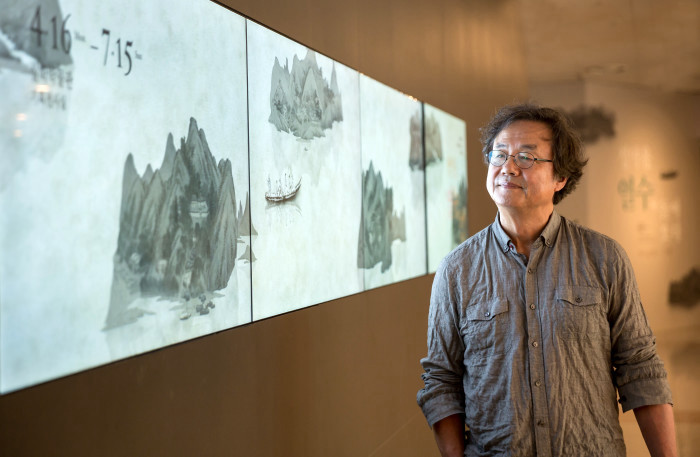
It is difficult to estimate the age of Actor Jung Dong-hwan. It is maybe because he is still actively involved in a variety of plays and TV series and his body shape and appearance have not changed a lot. Soon he will be turning 70. He is a very energetic person considering his age, calm appearance, and way of speaking. His passion for study and sincere attitude are already popular in the theatrical world, but his desire hidden behind his sincerity is not easily revealed. When Jung is off stage or outside of the TV screen, his concentrated energy stands out even more prominently. His energy is a never-ending spiral.
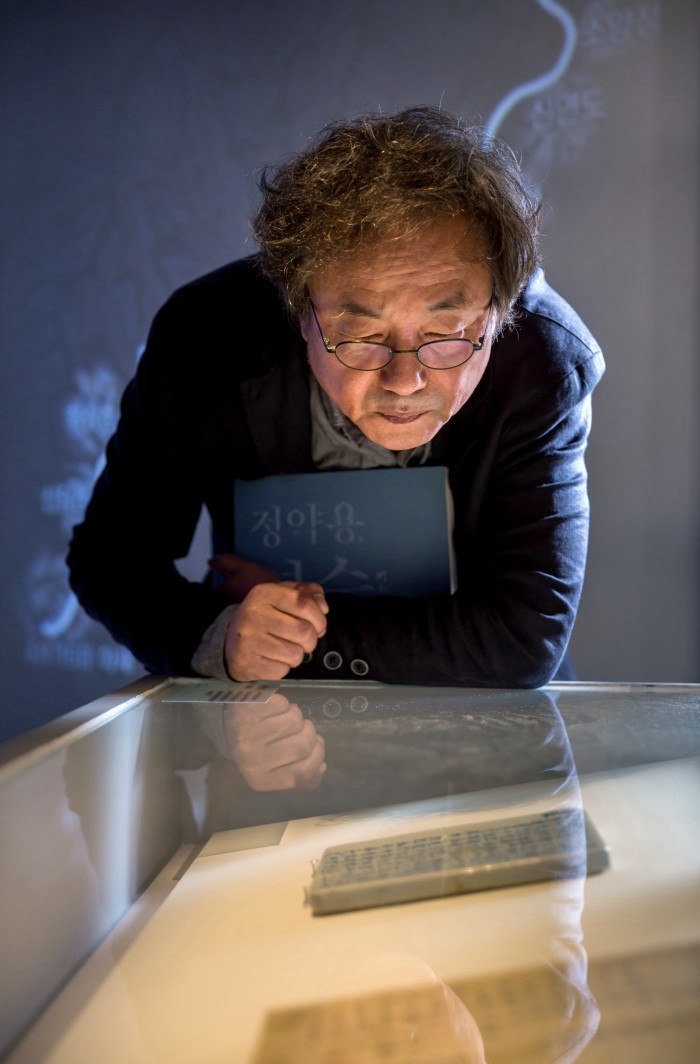
I have been so absorbed in Greece and Persia these days. I have recently read Histories of Herodotus. Although I have acted in Divine Comedy by Dante Alighieri as well as in numerous classical works by William Shakespeare and Greek dramas, there are limits to understanding the whole of an era. Actors can only understand fragmented moments at a time which they portray through acting. To realize now that all the moments have been real stories! You have no idea how surprised I am. I am studying the opposite side of the earth of the second millennium BCE, so it may take some time for me to enter the Silhak of Joseon from 200 to 300 years ago. (Browsing through books) Wow, I should get these books. I need to study.
He seems to try to memorize all of the Silhak books by Jeong Yak-yong on the spot. He said, "The more I learn and realize, the more I become ashamed of myself having been on stage without knowing anything when I was young." That may be why he seemed to pursue Jeong Yak-yong's books displayed at the shop of the Museum of Silhak.
I think it was last year. I visited Crete. The winds were so strong that I could barely stand straight. And I saw magnificent cliffs. People may say Crete is a great tourist destination with beautiful views. But it was an overwhelming place for me. Crete is the setting of Peter Shaffer's The Gift of the Gorgon. How can I put it? I think I realized in Crete the reason why people need art and plays. Now I know that we can remain upright only when art and plays do so. Although Crete's civilization was destroyed overnight, we still remember its history through art and history. Now we are living amidst its traces and memories. That is why art and plays are so important.'
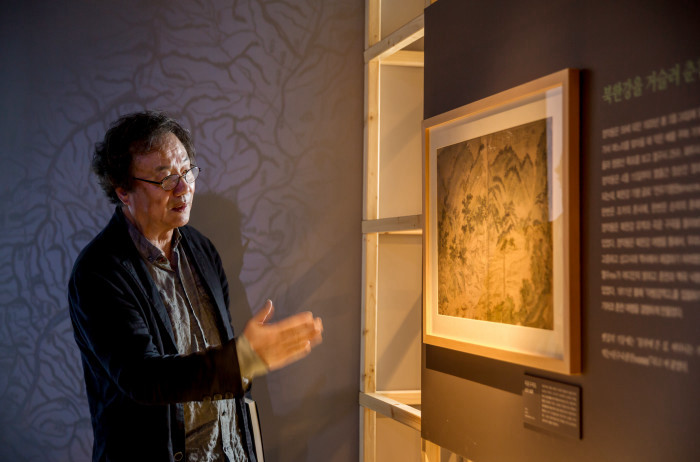
In the two-hander drama Heisenberg (written by Simon Stephens, produced by Kim Min-jeong, Doosan Art Center) which was put on stage for a month since April, Jung played the role of a single man named Alex in his 70s. Alex meets a single mother in her 40s by accident and falls in love with her. The play is about an incomplete and uncertain romantic relationship between the two characters. In this play with the motif of the uncertainty principle of Heisenberg, the couple is incomplete and uncertain from start to finish. However, Alex played by Jung is pretty attractive on this rather insecure (?) stage. He does not imitate Alex by constraint, but naturally displays Alex's tone and gestures as if he were Alex in the first place. He has been trying to be sincere and honest every moment and his efforts are now bearing fruit slowly but in a rich way. Even though he is turning 70, he still seems to be developing as an actor, and his inborn curiosity may be the secret.
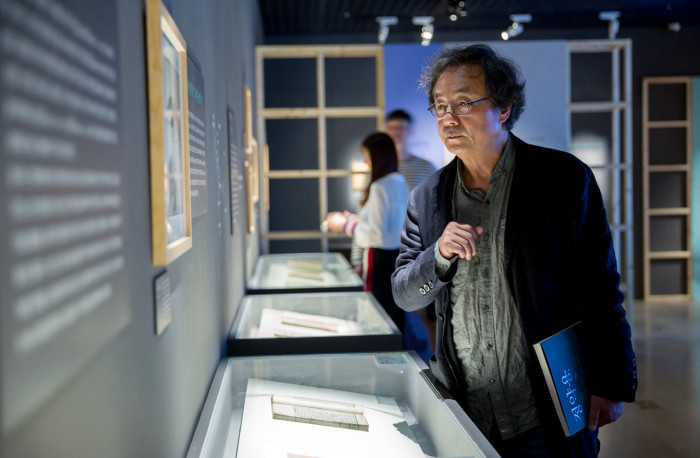
Sanhaeng Ilgi (Travel Diary)? How did Jeong Yak-yong go up Bukhangang River from Namhangang River? Did his ship have a mast? How could he go up the river? Did he understand how the river flows because he explored a lot? It's amazing. I wonder how he could do that.
"Jeong Yak-yong Comes Back to Yeolsu", a special exhibition of the Museum of Silhak (until July 15), is exhibiting Sanhaeng Ilgi (Travel Diary) and Cheonu Gihaenggwon (Visit of Cheonu) which are Jeong Yak-yong's Bukhangang River travel essays. He wrote these traveler's journals when he visited Chuncheon for the weddings of his nephew and grandson. It is noteworthy that not only did he write about beautiful mountains and nature along the Bukhangang River, he also investigated and made records of the villages. While Jung Dong-hwan read the travel essays, he was surprised by the fact that Jeong Yak-yong had gone up from the Namhangang River region to Bukhangang River. His question was plausible. Curator Jeong Sung-hee who prepared the exhibition answered, “Ships were a major means of transportation at that time and records show that most people traveled on ships. As there were no dams, the current would not be as fast as it is now. I have never seen a record that someone had trouble traveling along the Bukhangang River due to strong currents.”
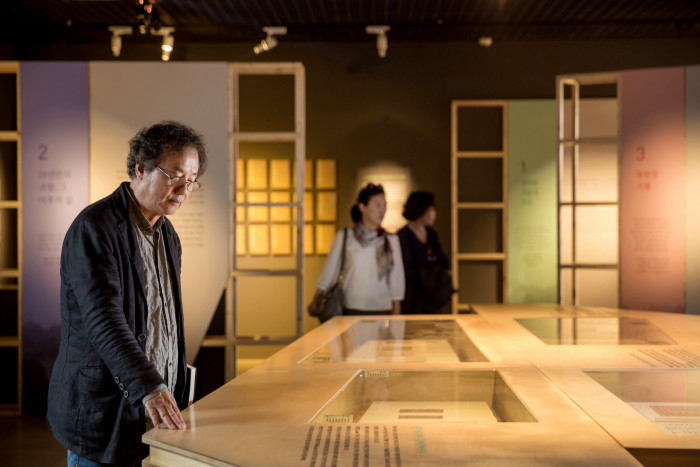
Jung's question evokes empathy, regardless of the expert's answer, because of the paintings of the late Joseon Dynasty about Gokungugok (Valley in Hwacheon-gun, Gangwon-do) mentioned by Jeong Yak-yong. Jeong Yak-yong mentioned Gokungugok in his Bukhangang River travelogue written in 1823. In Gokungugokdo painted by Jo Se-geol in the late Joseon Dynasty, the current between rocks seems really fast. Jung could not have come up with such a question if he had seen the exhibits with an indifferent attitude. His question rose out of his deliberating attitude. His attitude towards life is much the same. He climbed up mountains in Nepal with Um Hong-gil and bought a country house in Gwangju. He began to read Histories of Herodotus at the age of 70. He is an exemplary actor who hides his desire for freedom and recklessness. He bound himself with rectangular shackles named stage and TV screen. He gained the trust of audiences and viewers every time with his best efforts. That may be why his minor deviations seem interesting. His desire to make his rectangular life round is endless. He may be able to keep developing as an actor thanks to his healthy desire to become well-rounded. The Museum of Silhak supports Actor Jung Dong-hwan who will certainly become younger little by little everyday.
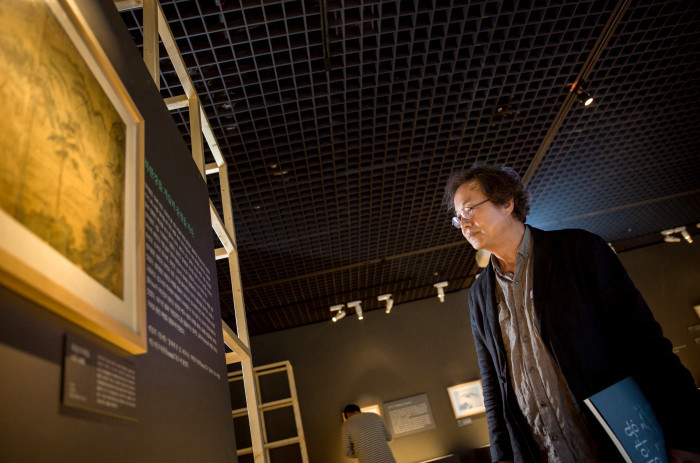
<Copyright(c)2002 GGC All rights reserved.>
information
Museum of Silhak/ Newsletter Issue 83
Special Talk Talk/ Actor Jung Dong-hwan
Written by/ Kim Su-mi (Planning & Operation Team, Museum of Silhak)
Address/ 16, Dasan-ro 747beon-gil, Joan-myeon, Namyangju-si, Gyeonggi-do
Inquiries/ 031-579-6000
Museum of Silhak Website/ http://silhak.ggcf.kr
Operation Hours/ 10:00-18:00
Closed/ Every Monday
- Writer
- About
You might like
Location around
Gapyeong_Local interview : Baengnyeonsa Temple
Buddhist Monk Hyoman Sunim of <Baengnyeonsa Temple> in Gapyeong
Spiral desire built by the rectangular life
Actor Jung Dong-hwan
THE FORMATION AND DEVELOPMENT OF KOREAN SILHAK, ASTRONOMY AND GEOGRAPHY
2. Development of Silhak
The person who lives the moment
September 1, 2018 - December 31, 2018 / Actress Seo Yi-suk